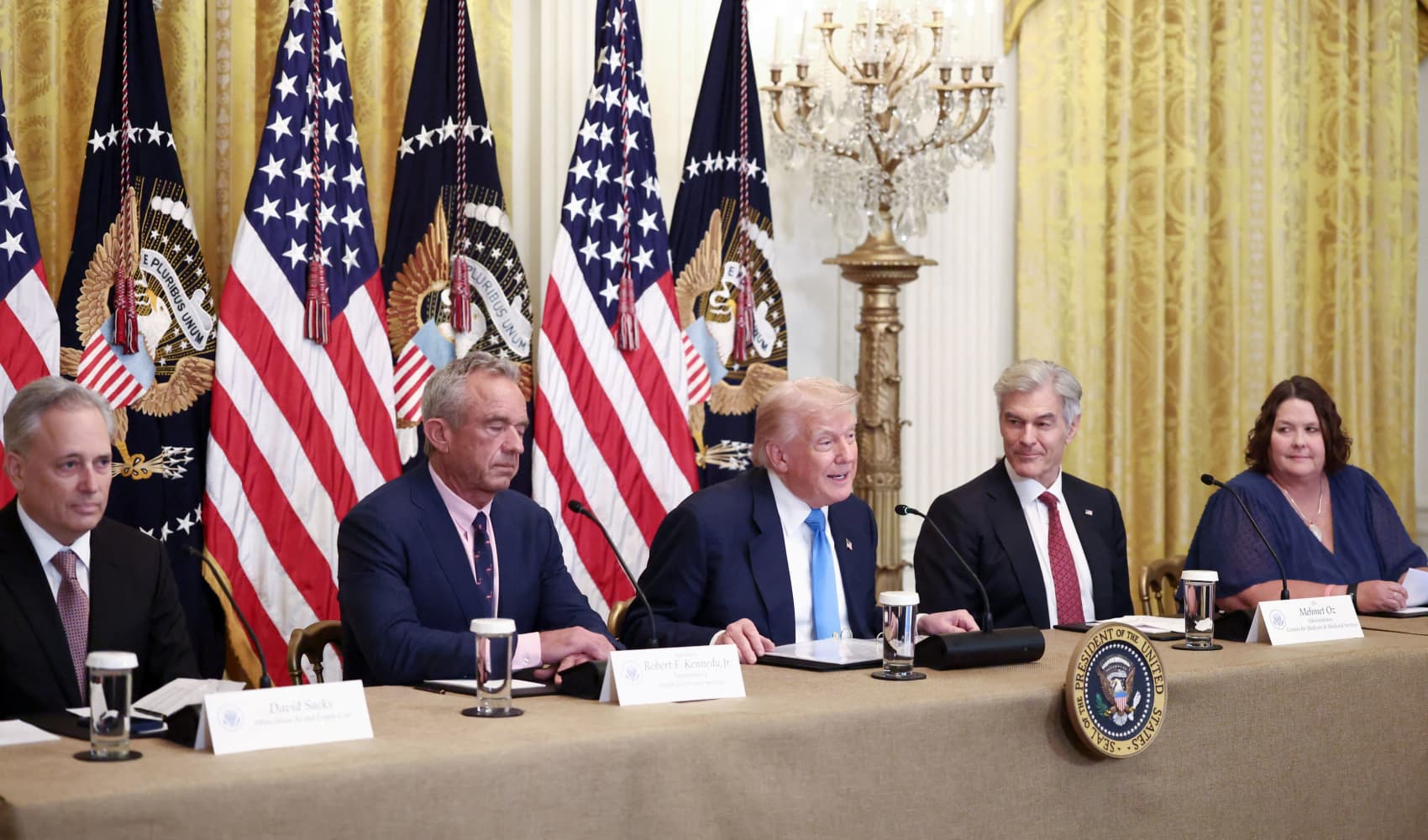President Donald Trump has issued a bold ultimatum to major pharmaceutical companies, demanding significant reductions in U.S. drug prices within a stringent 60-day timeframe. This aggressive move underscores his administration’s sustained push to tackle the soaring costs of prescription medications, which remain a critical concern for American families.
The demand was conveyed through individual letters sent to 17 prominent drugmakers, including industry titans such as Eli Lilly, GSK, Pfizer, Regeneron, Merck, and Novo Nordisk. Trump personally publicized these correspondences on Truth Social, amplifying the pressure on these corporations to comply with his administration’s pricing objectives.
This latest initiative follows an executive order signed in May, which revives a controversial “most favored nation” policy. The core aim of this policy is to slash U.S. drug costs by linking them to the substantially lower prices observed in other developed nations, a strategy designed to leverage international benchmarks for domestic savings.
The disparity in drug pricing is stark; U.S. prescription drug costs are, on average, two to three times higher than in other developed countries, and in some instances, up to ten times more expensive, according to data from the Rand Corporation. This significant gap fuels the administration’s argument for urgent and drastic reforms.
In his letters, Trump explicitly rejected prior proposals from drugmakers, characterizing them as “shifting blame and requesting policy changes that would result in billions of dollars in handouts to the industry.” He asserted that only commitments guaranteeing “immediate relief from vastly inflated drug prices” for American families would be acceptable.
Furthermore, Trump outlined specific expectations for the pharmaceutical sector. He called for companies to offer their full existing portfolios at the lowest prices available in other developed nations to Medicaid patients, and to contractually ensure Medicare, Medicaid, and commercial payers receive these “most-favored-nation” prices on all new drug launches. He also urged stronger negotiations with foreign nations and the repatriation of increased foreign revenues to lower U.S. prices, alongside exploring direct-to-consumer sales models.
The announcement had an immediate impact on the stock market, with shares of several pharmaceutical companies experiencing notable declines. Bristol Myers Squibb and Novo Nordisk saw nearly 5% drops, while GSK and Merck’s stocks fell over 3%, and Sanofi tumbled more than 8%, reflecting investor apprehension about potential revenue impacts.
As the 60-day deadline approaches, the pharmaceutical industry faces intense scrutiny and pressure from the White House. This ongoing confrontation highlights a pivotal moment in U.S. healthcare policy, with significant implications for both drug manufacturers and American consumers.




Leave a Reply